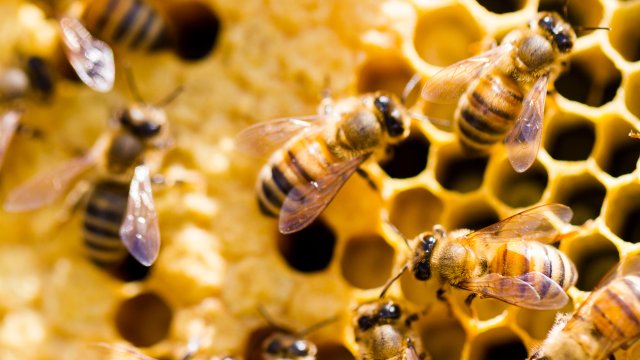05
Apr
Mayan Beekeepers Implicating Bayer/Monsanto in Die-Off of 300,000+ Bees, Harming Their Livelihood

(Beyond Pesticides, April 5, 2023) A collective of Mayan beekeepers (Colectivo de Comunidades Mayas) in Mexico are implicating chemical industry giant Bayer/Monsanto in a massive die-off of more than 300,000 bees among their combined apiaries. According to Mexico News Daily, the total value of losses represent a staggering $663,000 U.S. dollars (12 million pesos). The incident is the latest instance of the pesticide and agrichemical industry setting up shop in a local community and wrecking the health of the local ecology.
Mayan beekeepers explain that Bayer/Monsanto recently started operations on a ranch near Crucero Oxá in the southern Mexican state of Campeche. A local businessman placed the 50 hectare ranch on loan to the company. Since that arrangement, the company has aerially sprayed row crops like corn and soy with undisclosed chemicals. “One of Bayer’s engineers or technicians allowed us to take samples from one of their crops after the bees started to die,” said beekeeper José Manuel Poot Chan, to the newspaper La Jornada Maya. “We are exhausting all possible legal instances, while members of the Welfare Ministry already came to offer humanitarian social aid to cover part of the damages.”
Beekeepers suspect that the company is using the site to test new pesticides it is developing. This is not at all unheard of for a tropical environment. In the United States, giant chemical corps have been the focus of ongoing campaigns by grassroots health advocates in Hawaiian counties for its hazardous use of experimental pesticides. For instance, in 2016 Syngenta/ChemChina was fined nearly $5 million for exposing a dozen agricultural workers to an unregistered pesticide. According to data gathered by the nonprofit Center for Food Safety, in 2014 alone there were 1,381 field test sites in Hawaii and 178 sites in California.
Bee kill incidents from aerial spraying campaigns also have a saddening history. In 2016 in Dorchester County, SC, over two million honey bees were killed after an aerial mosquito spray campaign dropped the hazardous organophosphate insecticide Naled over yards and farms. These incidents show the importance and necessity of embracing pesticide alternatives on a broad scale.
To the Mexican government’s credit, there are efforts to move in that direction. Mexican President López Obrador announced in 2020 that his government would phase out glyphosate and work to embrace a more sustainable approach to agricultural production. Víctor M. Toledo, the Mexican Minister of the Environment, said the government’s goal is to produce food that is “safer, healthier and more respectful of the environment (más seguro, más sano y respetuoso con el medio ambiente).” The government also indicated it would aim to support time-tested practices developed by indigenous farmers. The United States, for its part, has worked on behalf of the chemical industry to pressure the Obrador administration to rescind this intended phaseout. While the U.S. government was successful in stopping similar actions in Thailand, there is no current indication that Mexico will rescind this decree.
In the context of these proclamations, the actions by Bayer/Monsanto are certainly not doing anything to endear itself to the local community. “I see no hope; on the contrary, the use of these products has worsened while [also] affecting those of us who are dedicated to beekeeping, and [it’s] harming our bees,” said Leydy Pech, beekeeper and longtime activist leader for Maya beekeepers to La Jornada Maya. In 2020, Ms. Pech received the international Goldman environmental prize for her work stopping Monsanto from producing genetically engineered soybeans in seven Mexican states.
These incidents and the dire situation with pollinator populations in the state underscore the need to place actions behind positive proclamations. It is evident that Bayer/Monsanto is incapable of being a good neighbor, given the inherent hazards associated with the core of their business practices. In an open letter posted in a recent tweet, Mayan beekeepers are calling on the government to open an investigation and urgently prohibit pesticide fumigation in the region.
These disaffected Mayan communities are part of global resistance efforts against the actions of agrichemical corporations. In Hawaii, advocates in Maui County are responding to this threat in a variety of ways. Since the start of the pandemic, work has focused on homegrown food security. Rather than direct local resources to chemical dependent farming practices, Maui lawmakers are embracing grassroots work to establish a local food hub, and organic agriculture in the community ag park.
All unattributed positions and opinions in this piece are those of Beyond Pesticides.
Source: Mexico News Daily (also see tweet in Spanish from Colectivo de Comunidades Mayas










